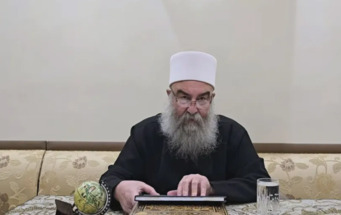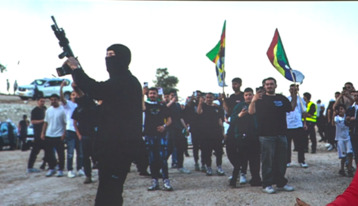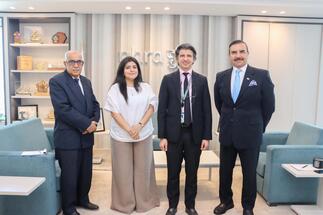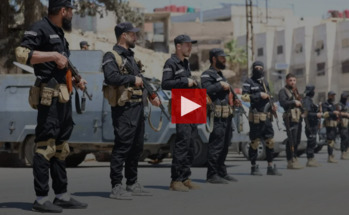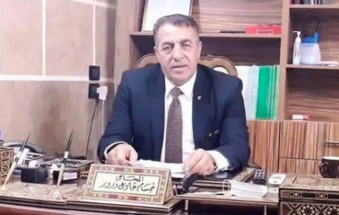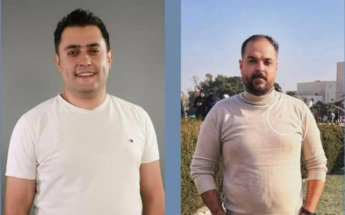-
Demonstrator says shooters of Iraqi protesters ‘Iranians speaking Farsi’
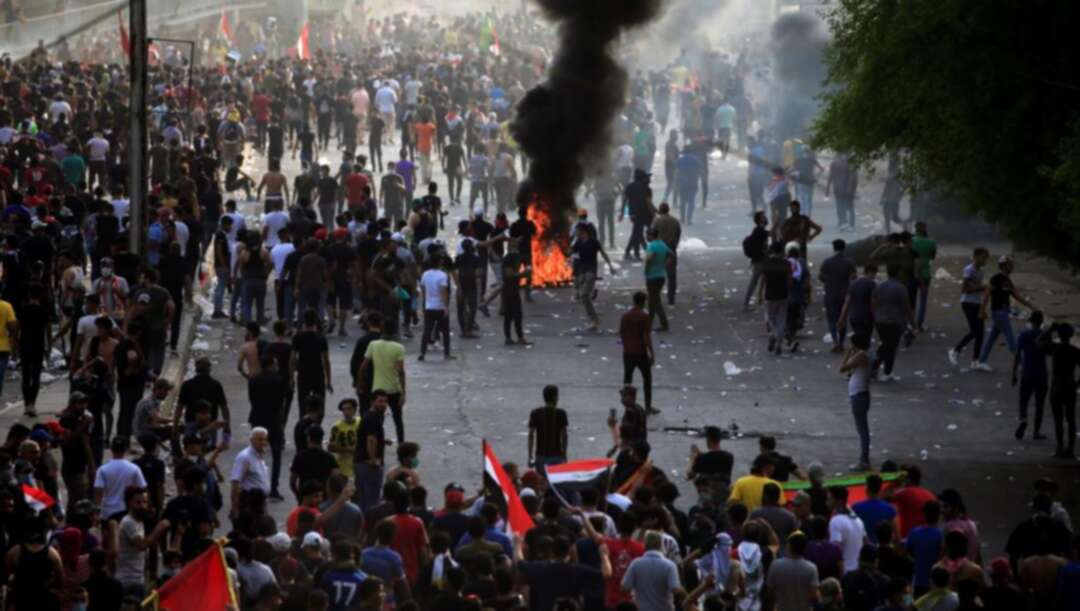
Farsi-speaking Iranians, not Iraqi forces, have been shooting at people during Iraq’s recent deadly protests, according to a protester interviewed in Baghdad by Reuters.
“There is no work, you come to protest, they fire at you. Live gunfire. They are all Iranian speaking in Farsi. You want to speak to them they answer in Farsi. The Iraqis would not fire at you,” an unnamed Iraqi protester told Reuters in a video published on Thursday.
Anti-government protests in Iraq, which began over unemployment and poor services but have escalated into calls for a change of government, have been met with live fire. Over three days of protests, 33 people have been killed and more than 600 wounded.
The mostly leaderless protests have been concentrated in Baghdad and in predominantly Shiite areas of southern Iraq. Demonstrators defied a curfew imposed by security forces on Thursday and continued to protest.
Protestors have been reportedly been shouting slogans against Iran for supporting Shiite militias and groups who have a stranglehold on Iraq’s politics.
Iran is influential in Iraq, including military personnel on the ground. Iraqi Prime Minister Adil Abdul Mahdi is a former member of the Supreme Islamic Iraqi Council, a Shiite political party with close ties to Iran.
Many of the Popular Mobilization Units (PMU) militias are loyal to Iran, and the PMU’s deputy commander Jamal Jaafar al-Ibrahimi – known by his nom de guerre Abu Mahdi al-Mohandes – is a key Iranian ally. Mohandes is also the leader of Katai’b Hezbollah, the terrorist organization accused of attacking Saudi Arabian oil pipelines in May.
Iran’s Islamic Revolutionary Guard Corps (IRGC) is also influential in Iraq. Qassem Soleimani, the commander of the IRGC’s Quds Force, has repeatedly travelled to Iraq in violation of UNSCR 2231, which established a travel ban as part of the Iran nuclear deal.
Last week, Iran’s ambassador to Iraq said that his country would not hesitate to attack US forces in Iraq if the US or its allies struck Iran, following the September 14 attacks on Saudi Aramco oil facilities which have been widely attributed to Iran.
As Tehran is increasingly isolated due to the US’ “maximum pressure” policy, Iran has also tried to use Iraqi companies to bypass US sanctions.
The protests in Iraq have continued into their fourth day. On Friday, protestors were again fired upon after they defied Prime Minister Abdul Mahdi’s earlier call for them to disperse.
Tags
You May Also Like
Popular Posts
Caricature
BENEFIT Sponsors BuildHer...
- April 23, 2025
BENEFIT, the Kingdom’s innovator and leading company in Fintech and electronic financial transactions service, has sponsored the BuildHer CityHack 2025 Hackathon, a two-day event spearheaded by the College of Engineering and Technology at the Royal University for Women (RUW).
Aimed at secondary school students, the event brought together a distinguished group of academic professionals and technology experts to mentor and inspire young participants.
More than 100 high school students from across the Kingdom of Bahrain took part in the hackathon, which featured an intensive programme of training workshops and hands-on sessions. These activities were tailored to enhance participants’ critical thinking, collaborative problem-solving, and team-building capabilities, while also encouraging the development of practical and sustainable solutions to contemporary challenges using modern technological tools.
BENEFIT’s Chief Executive Mr. Abdulwahed AlJanahi, commented: “Our support for this educational hackathon reflects our long-term strategic vision to nurture the talents of emerging national youth and empower the next generation of accomplished female leaders in technology. By fostering creativity and innovation, we aim to contribute meaningfully to Bahrain’s comprehensive development goals and align with the aspirations outlined in the Kingdom’s Vision 2030—an ambition in which BENEFIT plays a central role.”
Professor Riyadh Yousif Hamzah, President of the Royal University for Women, commented: “This initiative reflects our commitment to advancing women in STEM fields. We're cultivating a generation of creative, solution-driven female leaders who will drive national development. Our partnership with BENEFIT exemplifies the powerful synergy between academia and private sector in supporting educational innovation.”
Hanan Abdulla Hasan, Senior Manager, PR & Communication at BENEFIT, said: “We are honoured to collaborate with RUW in supporting this remarkable technology-focused event. It highlights our commitment to social responsibility, and our ongoing efforts to enhance the digital and innovation capabilities of young Bahraini women and foster their ability to harness technological tools in the service of a smarter, more sustainable future.”
For his part, Dr. Humam ElAgha, Acting Dean of the College of Engineering and Technology at the University, said: “BuildHer CityHack 2025 embodies our hands-on approach to education. By tackling real-world problems through creative thinking and sustainable solutions, we're preparing women to thrive in the knowledge economy – a cornerstone of the University's vision.”
opinion
Report
ads
Newsletter
Subscribe to our mailing list to get the new updates!

